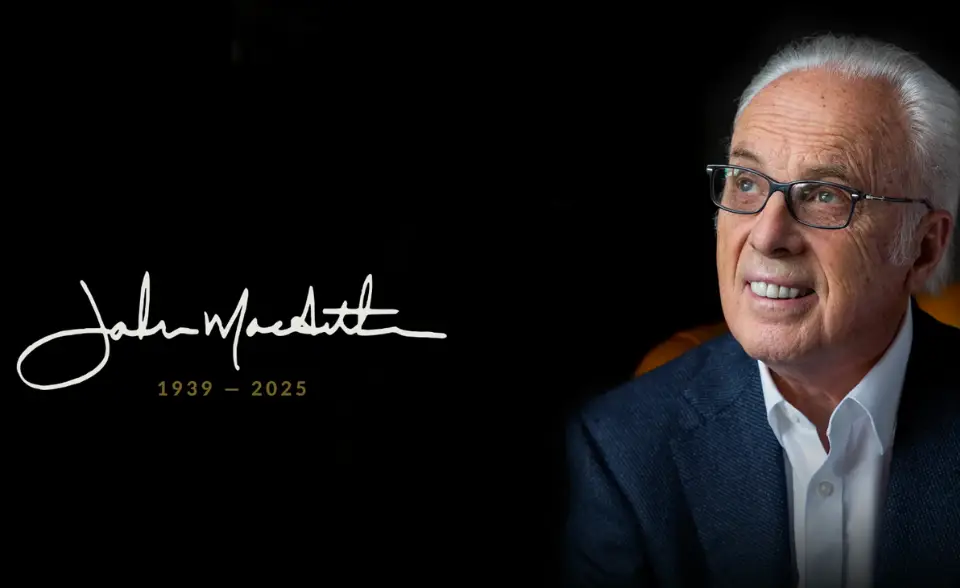There is a progress of time in God’s plan. The idea that time is like a child’s top and simply is set spinning and let go while it spins on its own, is not accurate regarding the movement of history.
Instead, history is a display of the purposes of God being accomplished among the affairs of men. They are all decided and determined beforehand by the only One who can do such a thing: the God of the Bible.
Like Peter wrote, it might be easy for people to assume that everything will continue as it has before (2 Peter 3:3-4). The promised coming is long distant, or not at all. However, like Peter wrote, what escapes our notice when we are tempted to think this way is that God has invaded time and the history of men before. He did it first with creation itself, when God initiated time. Then He did it with the flood. Then He did it with the Tower of Babel. And, He has invaded time and history hundreds of times since then in the existence of the nation of Israel.
It is also disregarded that the Son of God came as a Man, and was performing miracles every day of His ministry. And, in addition to all of this, the continued consistency with modern times and the predictions of the Bible are uncanny.1
But, what is the beginning of it all? Do we know God’s purpose for all of His activity in the history of men and the world? Can we know what God is after? What is His ultimate purpose?
The answer to these questions is “Yes! Yes, we can know and we must know.” Not only is the information we need to determine God’s ultimate purpose in time and history available, but we are required, as the church, to know, and announce these things to the world. For the church to act like there is some kind of metaphysical barrier between God’s purpose and our history, is tantamount to being a protoloigcal agnostic. That is, it would be like assuming that God’s original design and purpose, even dealing with information about these things before time began, is simply unknowable.
However, the intentions of God, and as God Who is conducting which part of the plan, are available for our learning, our instruction, and our benefit, to the glory and praise of God alone.
33Oh, the depth of the riches and wisdom and knowledge of God! How unsearchable are His judgments and unfathomable His ways!
34 For who has known the mind of the Lord, or who became His counselor?
35 Or who has first given to Him that it might be repaid to him?
36 For from Him and through Him and to Him are all things. To Him be the glory forever. Amen. (Romans 11:33–36, LSB)
In The Beginning Before The Beginning
As I asserted above, there is a tendency to be a protological agnostic in reference to the things regarding God first actions in time and history, as well as any information regarding His purpose as determined before time. “Protology” is the study of first things. It is the study of the origins, purpose(s), and first events before and in the history of the world. Of course, all of this is predicated upon what is recorded in the Bible. That is to say, our information of man’s history spanning as far back as around 3,500 BC in the written records, can only give us some data to correlate events and movements and key people in history. However, the interpretation and explanation for it all can only come from one infallible, and inerrant, source-the Bible. In order to rightly accumulate the data, and organize it in its right sequence, we need to research the Bible and have it tell us what our finds mean.
My intention in this short essay is to begin to explain what the Bible tells us, not of human history and its origins (although I will delve into that as necessary), but of whatever we can glean from the Bible about God’s intentions and purposes determined before time began as revealed to us in Scripture. In other words, I want to examine what we know about the eternity before, “In the beginning, God created the heavens and the earth” (Genesis 1:1).
At the outset, it is important that the informed reader know that I do not believe in a hermeneutic that does injustice to the inerrant Word. I only employ an historical and grammatical approach to the Bible in its original languages. I do not have loyalties to an institution, a movement, or a creed. In fact, as every pastor should, my only loyalties are to the God and Father of our Lord Jesus Christ Who is the Catalyst and Initiator of all things. He is also the Consummator of what He has determined to accomplish. I write with my eternal reward in view. That is, I write with a very real and strong sense of what I will have to say for myself that split-second I appear before God after I breathe my last breath. That very moment is the only time for which I live, and for which I write. Nothing else matters, least of all loyalty to a theological brand, or movement. Yet, there are some points in the history of doctrinal emphases that are important and helpful, and many that are not. I will intersect with them as necessary.
The Eternal Council Was Not A Council
7 “I will surely tell of the decree of Yahweh:
He said to Me, ‘You are My Son,
Today I have begotten You.
8 ‘Ask of Me, and I will surely give the nations as Your inheritance,
And the ends of the earth as Your possession.
9 ‘You shall break them with a rod of iron,
You shall shatter them like a potter’s vessel.’” (Psalm 2:7–9, LSB)
Psalm 2 is the key foundation to understanding Protology. Without a thoroughgoing understanding of this Psalm, as church history has shown, man is left to wander in a dark cave without light. The light source for me came on in 2010 when I was reading my Bible and “stumbled” across this Psalm. Its words opened to me like a flower and I began to notice that what David wrote here cannot be overlooked in regard to Protology.
The Psalm is a gateway into all of Scripture. It is a prophetic Psalm of David that is, obviously, inspired by the Holy Spirit (Acts 4:25-26). What is written there, as prophetic Scripture, is meant to tell us something beyond David, and that it does. The Psalm is a record of the wording and purpose of God the Father, Son, and Holy Spirit as it regards what Paul calls God’s “eternal purpose” (Ephesians 3:11). Peter, in Acts 4, agrees with Paul that Psalm 2 is the ground of all the revealed information needed to understand God’s “predetermined will.” Notice what he said, as recorded by Luke:
24 And when they heard this, they lifted their voices to God with one accord and said, “O Master, it is You who made the heaven and the earth and the sea, and all that is in them,
25 who by the Holy Spirit, through the mouth of our father David Your servant, said,
‘Why did the Gentiles rage,
And the peoples devise vain things?
26 ‘The kings of the earth took their stand,
And the rulers were gathered together
Against the lord and against His Christ.’
27 “For truly in this city there were gathered together against Your holy Servant Jesus, whom You anointed, both Herod and Pontius Pilate, along with the Gentiles and the peoples of Israel,
28 to do whatever Your hand and Your purpose predestined to occur. (Acts 4:24–28, LSB)
Peter and John understood that Psalm 2, as quoted here in portion, is a Psalm which refers to “whatever (God’s) hand and (God’s) purpose predestined to occur.” They understand the nature and extent of the Psalm as a record of what is predestined for them, and for all time. To Peter and John, Psalm 2 recorded what was fulfilled in their persecution for preaching the gospel of Jesus Christ. But, even more than that, they understood that David wrote by the Holy Spirit and of such a character that it was not about David. His writing was substantially about God’s predestined will.
Paul also helps us to understand something of this predestined will. He wrote to the church in Ephesus:2
11 In Him, we also have been made an inheritance, having been predestined according to the purpose of Him who works all things according to the counsel of His will, (Ephesians 1:11, LSB)
Paul tells us that the church has been “made an inheritance,” and that established purpose of God was the result of the “predestined…purpose of Him who works all things according to the counsel of His will.” Paul instructs us that God did not have a “divine council” as some aver. Rather, the Father unilaterally predetermined what His purpose is and initiated it of His “good pleasure” (see Ephesians 1:5,9) and with the end result of “the praise of His glory” (Ephesians 1:6,12,14). It is, then, the unilateral will of the Father to have planned and commenced His purpose by His Son Jesus Christ. In the process of doing all of this, He has made us adopted sons, an inheritance, and is moving towards a summing up of everything in Christ (vv. 5, 10, 11).
Conclusion
As this will be an ongoing series, I will have to stop here and let this soak in for those who might read it.
Over the coming weeks, as the Lord wills, I plan to write down what the Bible has to say about the eternal purpose of the Father, a purpose revealed thoroughly in Psalm 2, and echoed throughout Scripture from Genesis 1 to Revelation 22.
- I am referring to the words of Jesus primarily, that there would be wars, rumors of wars, increased lawlessness, and increased persecution of the church (Matthew 24:4-14). ↩
- The earliest manuscripts do not include the word “Ephesus” in the prologue of our Ephesians. Therefore, many believe that Ephesians is the “epistle to the Laodiceans” of Colossians 4:12. ↩







